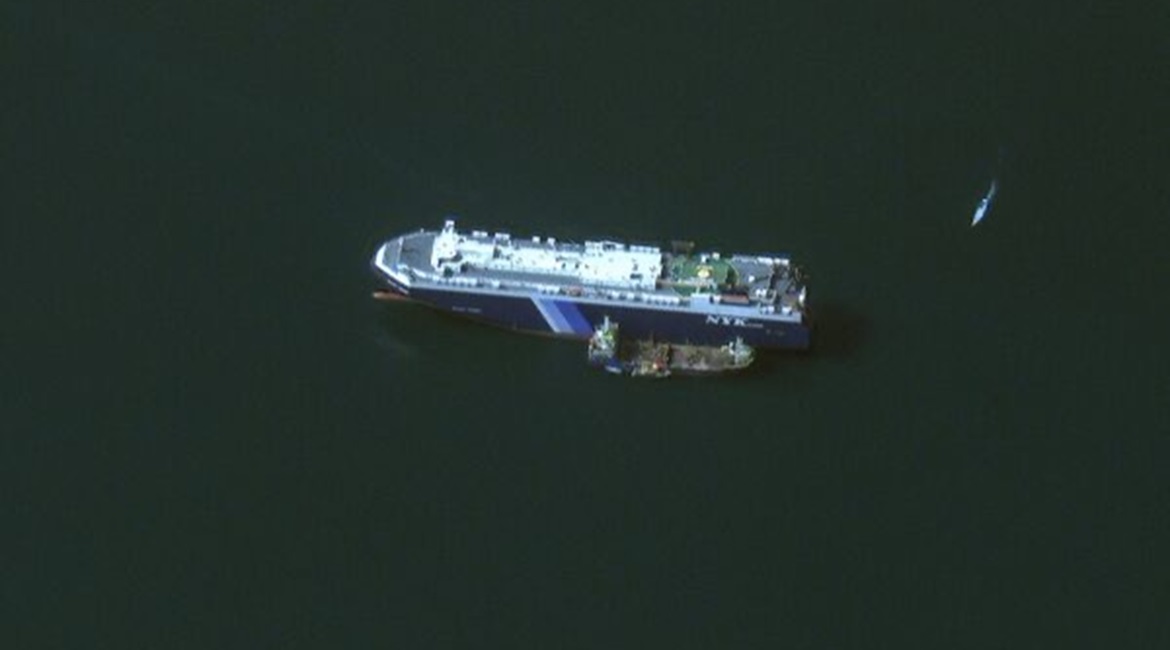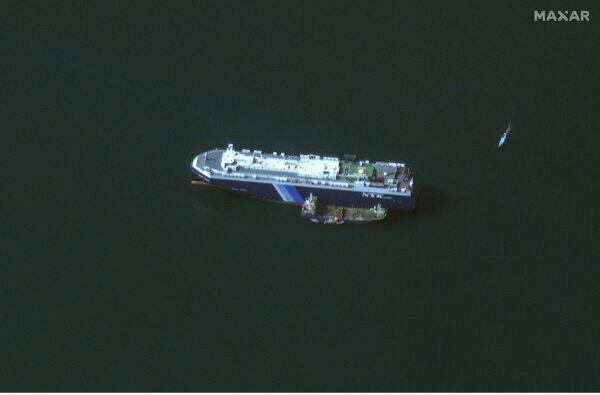
Date Posted: 21-Dec-2023
Author: Guy Anderson, London
Publication: Jane's Intelligence Review
Shipping operators accounting for more than 70% of global traffic have paused transits through the Red Sea on security grounds. Guy Anderson assesses the economic implications for Egypt, Israel, and Jordan
Key points
- The cessation of Red Sea transit by some of the world's largest shipping companies in response to attacks against maritime traffic by Yemeni rebel group Ansar Allah poses a threat to the economies of Egypt, Jordan, and – to a lesser extent – Israel
- Egypt faced an immediate drop in income from Suez Canal transit fees while Jordan's crucial commodities sectors will face challenges
- Broader challenges include interruptions to global supply chains and the supply of gas to Europe as winter commences
The significant escalation in attacks by Yemeni rebel group Ansar Allah (also known as the Houthis) against ships transiting the Red Sea led to 13 shipping operators announcing the suspension of journeys through the strategic waterway or the rerouting of services, between 15 and 19 December 2023.
The companies – which collectively account for at least 70% of global maritime freight traffic – announced either pauses to Red Sea journeys or the suspension of services to or from Israel (see table).
Ansar Allah launched its attacks against Red Sea vessels in November in response to hostilities between Israel and Hamas. An initial objective of targeting Israeli-owned or Israeli-controlled shipping broadened to all vessels bound for Israeli ports on 9 December, following a statement by the spokesperson for the Yemeni armed forces aligned with Ansar Allah, Brigadier General Yahya Sare'e, although connections between specific vessels and Israel became less clear as the scale of attacks escalated.
Janes tracked 13 hostile actions against civilian vessels between 19 November and 18 December 2023, with the tempo of attacks increasing from two in the latter half of November to three on 15 December and two on 18 December.
| Operator | Date | Country HQ | % world shipping | Action |
|---|---|---|---|---|
| Maersk | 15 December 2023 | Denmark | 15% | Vessels schedule to transit Red Sea ‘paused' until further notice |
| Hapag-Lloyd | 15 December 2023 | Germany | 7% | Vessels schedule to transit Red Sea ‘paused' until further notice |
| MSC | 16 December 2023 | Switzerland | 19.3% | Suspension of Red Sea navigation. Ships transiting Red Sea to reroute around Southern Africa |
| CMA CGM | 16 December 2023 | France | 12.6% | Vessels schedule to transit Red Sea ‘paused' until further notice |
| OOCL | 16 December 2023 | Hong Kong | Unknown | Suspension of transit to or from Israel until further notice |
| BP | 18 December 2023 | United Kingdom | Unknown | Vessels schedule to transit Red Sea ‘paused' until further notice |
| Evergreen | 18 December 2023 | Taiwan (Republic of China) | 6.1% | Suspension of Red Sea navigation. Ships transiting Red Sea to reroute around Southern Africa. No longer accepting Israeli cargo |
| Frontline | 18 December 2023 | Norway | Unknown | Suspension of Red Sea and Gulf of Aden navigation |
| Euronav | 18 December 2023 | Belgium | Unknown | Suspension of Red Sea navigation |
| Yang Ming Marine | 18 December 2023 | Taiwan (Republic of China) | 2.6% | Suspension of Red Sea navigation. Ships transiting Red Sea to reroute around Southern Africa |
| COSCO Shipping Corp | 19 December 2023 | China (People's Republic of China) | 10.80% | Suspension of Red Sea navigation |
| HMM | 19 December 2023 | South Korea (Republic of Korea) | Unknown | Suspension of Red Sea navigation. Ships transiting Red Sea to reroute around Southern Africa |
| Wallenius Wilhelmsen | 19 December 2023 | Norway | Unknown | Suspension of Red Sea navigation |
| Ocean Network Express | 19 December 2023 | Japan | Unknown | Suspension of Red Sea navigation. Ships transiting Red Sea to reroute around Southern Africa |
Red Sea significance
The Red Sea is a strategic waterway with 10% of global shipping passing through it each year.
Pausing transits, or rerouting vessels around the Cape of Good Hope, will have implications for global supply chains that are in many cases still recovering from interruptions caused by the Covid-19 pandemic and the conflict between Russia and Ukraine.
The effects of a steep reduction in Red Sea shipping will very likely be most keenly experienced to varying degrees in the Red Sea littoral states of Egypt, Israel, and Jordan. The depth of the impact will depend largely on how quickly normal transit levels can be restored.

 Maxar close-up view satellite imagery off Southern Red Sea near Hodeida, Yemen, that shows the recently seized Galaxy Leader ship captured by Houthi fighters on 19 November 2023. The ship is anchored offshore of As Salif, Yemen, and has a support tender vessel positioned nearby. (Satellite image (c) 2023 Maxar Technologies DigitalGlobe/Getty Images)
Maxar close-up view satellite imagery off Southern Red Sea near Hodeida, Yemen, that shows the recently seized Galaxy Leader ship captured by Houthi fighters on 19 November 2023. The ship is anchored offshore of As Salif, Yemen, and has a support tender vessel positioned nearby. (Satellite image (c) 2023 Maxar Technologies DigitalGlobe/Getty Images)
Egypt
Revenue from the Suez Canal, through which up to 20,000 ships pass each year, is a major source of foreign currency for Egypt, contributing revenue of USD7 billion in 2022. Egypt's Suez Canal Authority (SCA) played down the impact of the announced reduction in Red Sea traffic, stating that between 19 November and 17 December 2023 just 55 vessels rerouted via the Cape of Good Hope compared with the 2,128 that transited.
It is clear, however, that Suez Canal revenues will be significantly reduced at a time of significant ongoing economic challenges for Cairo. Egypt is facing an unfavourable balance of payments position that caused annual inflation to reach 34.5% in November 2023; the Egyptian pound to lose half its value against the US dollar between March 2022 and October 2023; and foreign currency reserves to dwindle from a relative high of USD45 billion in 2019 to USD35 billion by October 2023.
The Suez Canal is also one of Egypt's three primary foreign currency streams. The others are tourism (which brings in around USD10 billion per annum) and gas exports (around USD8 billion). All three streams have been disrupted by hostilities in Gaza.
Egypt's earnings from the re-export of natural gas from Israel collapsed between October and November as a result of gas field shutdowns in southern Israel related to the conflict, although output – and therefore foreign sales – subsequently recommenced.
Egyptian tourism, meanwhile, has also faced headwinds as a result of the conflict, although the Egyptian Ministry of Tourism said in November 2023 that the fallout had at that time been limited to just 10% of bookings.
Israel
Reduced Suez traffic is unlikely to affect Israel to the same degree as its neighbours, although a prolonged pause in transits and a refusal on the part of some operators to carry cargo to or from Israel (on the grounds of elevated insurance premiums) will not be cost free.
Israel's Eilat port, which opens to the Red Sea via the Gulf of Aqaba, is highly likely to have seen greatly reduced traffic following the commencement of Ansar Allah's attacks against shipping in November. Eilat accounts for just 5% of Israeli trade, although 99% of Israeli goods are imported by sea and disruption will therefore hamper trade.
Eilat is also the primary departure point for Israeli trade with Asia, which has seen substantial growth in recent years with bilateral trade with India and China alone having climbed 91% to USD10 billion in the decade to 2022.
Prolonged maritime disruption will interrupt Israel's goods exports, which were valued at USD73 billion in 2022. Potentially more significant, however, will be the inflationary pressures of reduced import flows.
Jordan
Similar to Egypt, Jordan has faced the economic implications of the Israel-Gaza conflict from a position of relative weakness. Unemployment is high at more than 20%; the country is almost entirely dependent on food and energy imports, given a dearth of domestic resources; and state subsidies to shield the population from the worst of global commodity inflation has driven public debt to 92% of GDP.
Tourism – a critical source of foreign income and employment – was hit hard by the Israel-Gaza conflict with vehicle rental companies (an indicator of the holiday trade) having reported cancellations of 90% for December.
Despite generally limited factor endowment, Jordan is the world's second largest exporter of potash and phosphate fertilisers – commodities that make up 17% of national exports and around 3% of GDP.
Jordan Industrial Ports Company (JIPC) of Aqaba handles all of the country's seaborne commodity exports via the Red Sea, with 76% of potash output leaving the country via ship for primarily Asian customers. Potassium exports are marginally less exposed (10% exported through Aqaba), given a customer base in the Middle East and Europe.
A prolonged suspension of Red Sea shipping by operators will be highly likely to worsen Jordan's balance of payments position.
Beyond national commodity exports, Aqaba hosts Jordan's only container port, which handles up to one million TEUs (Twenty Foot Equivalent Units) of containers annually, and acts as a hub for transit to elsewhere in the Middle East.
Jordan – similar to Israel – is highly likely to face an increase in inflationary pressures in the short-to-medium term if goods imports remain restricted by reduced Red Sea transits.
Beyond the region
Beyond the economic impact on some of the littoral states of the Red Sea, the threat of reduced maritime transits also has energy market implications, with the benchmark Brent Crude increasing by 4% in the week to 19 December.
For European states in particular there was the challenge of potentially disrupted gas supplies at the start of winter. Fully 16% of European supplies of liquified natural gas (LNG) pass through the Suez Canal and 10% of European Union member states' gas in this form comes from Qatar. An emphasis on gas suppliers in North Africa and the Middle East has grown since Russia's invasion of Ukraine in 2022 led European states to reduce their energy reliance on Moscow.
Outlook
Janes assesses that Ansar Allah will almost certainly continue to launch unmanned aerial vehicle (UAV) and missile attacks against shipping in the Red Sea in the immediate to short term so long as conflict between Israel and Hamas continues. Furthermore, Janes assesses that the limited damage resulting from Ansar Allah's attacks so far matters less to the Yemeni group's decision making than the value of such operations in demonstrating that Ansar Allah possesses the capability to widen the conflict.
Janes assesses that the launch of US-led Operation ‘Prosperity Guardian' is unlikely to deter Ansar Allah from launching further attacks, though the co-ordination of participating naval vessels operating in the Red Sea is likely to result in more successful interceptions of Ansar Allah-launched UAVs. On 19 December a spokesperson for Ansar Allah, Mohammed Abdulsalam, posted a statement on X (formerly Twitter) vowing that launch of Operation ‘Prosperity Guardian' “will not stop Yemen from continuing its legitimate operations in support of … Gaza”.






